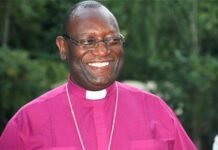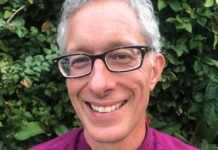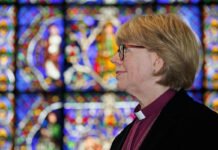Members Sacked for Asserting Independence,
in order to Make Safeguarding More Independent
The Independent Safeguarding Board, set up to provide vital scrutiny of the Church of England’s safeguarding processes, has been abolished by the Archbishops’ Council. The Council claimed that “working relationships between two members of the Independent Safeguarding Board (ISB) and the Council have broken down.” This comes after two members of the ISB had served the Archbishops’ Council with a formal dispute resolution notice in May. They alleged that the Council had frustrated the Board’s work of providing independent scrutiny of Church of England Safeguarding practices.
The ISB was set up in February 2021 following the report of the Independent Inquiry into Child Sexual Abuse (IICSA) in 2020. The three-member panel lost its first Chair, Professor Maggie Atkinson, following complaints about her handling of confidential documentation. Three of these allegations were upheld by the Information Commissioner’s Office. She was replaced in March by Archbishops’ Council appointee, Meg Munn, who was to serve as Acting Chair until the end of the year.
Ms Munn already holds safeguarding posts in the Church of England as chair of the National Safeguarding Panel and as a member of the National Safeguarding Steering Group. She is deeply embedded in the safeguarding system of the Church, yet as ISB Chair, was also responsible for providing independent scrutiny of it. The ISB Terms of Reference on Membership states, “Phase 1 ISB has three members. All are independent of all Church bodies.”
More than seventy survivors and survivor advocates objected to Ms Munn’s appointment, calling it a conflict of interest. Fifty survivors had asked that their data not be shared with her.
Ms Munn, a former Labour and Co-operative MP who served as a junior minister in the Foreign Office under Gordon Brown, will now provide business continuity for any outstanding ISB matters following its abolition.
The other members of the ISB, Jasvinder Sanghera CBE, the Board’s Survivor Advocate, and Steve Reeves, a specialist in combatting sexual exploitation and abuse in organisational settings, claimed that the Archbishops’ Council repeatedly blocked the Board’s work, compromised its independence, and refused to listen to both them and to survivors.
In their dispute resolution notice, recently made public, the two ISB members accused the Archbishops’ Council of contravening the Terms of Reference under which the ISB was established, by appointing an acting chair without a fair and transparent process, and appointing one who is not independent of all Church bodies. Moreover, they claim the Council provided the Acting Chair, Meg Munn, with a remit to disregard ISB decisions.
They also allege that the Archbishops’ Council directed the removal of survivor engagement content from the ISB website, relating to a specific initiative planned for over a year and led by Jasvinder Sanghera.
The pair also stated that the Archbishops’ Council “engaged in a pattern of conduct to ensure that the ISB is restricted from exercising its role”, in particular by withholding an Information Sharing Agreement (ISA) for a prolonged period, despite numerous requests. Furthermore the Council made “day to day operations unnecessarily challenging through restricting the legitimate use of shared services.“
The Archbishops’ Council responded by outlining a resolution process with the precondition that the two members would acquiesce to the appointment of the Acting Chair and refrain from any public comment. It is understood that they have not met Ms Munn since March.
The Board members had requested the appointment of an independent mediator, as provided for in their contracts. This was rejected by the Archbishops’ Council. Instead they terminated the contracts of the complainants and ended the work of the ISB: “It has been widely reported that there has been a dispute between two members of the ISB and the Council. Members of the Council and our experienced safeguarding professionals have been working constructively over recent months to put the ISB on a more sustainable footing.
“Nevertheless, it has now become clear that this is no longer viable with its current membership and that the dispute itself risks getting in the way of that urgent priority of moving to the next phase of establishing a new independent safeguarding body.
“The Council has therefore agreed a reset. This will involve ending the contracts of two of the members of the Board, Jasvinder Sanghera and Steve Reeves, and of the acting Chair, Meg Munn.
“The Council will be putting in place interim arrangements to continue the independent oversight of existing case reviews.”
The Archbishops of Canterbury and York thanked the ISB members for their work, and insisted, “Independent oversight of the Church of England’s safeguarding is an urgent and indispensable first step away from the suspicion of marking our own homework.”
In response to the news, Dr Sanghera tweeted, “I am totally taken aback by this action. I have never ever experienced such behaviour. We did the job asked of us, have trust of survivors & they remove us?”
She also tweeted, “I have advocated for victims & survivors for 3 decades and never experienced anything like this. We were informed an hour before the press release. I’m sorry that we were not given time to prepare survivors, this treatment is unacceptable.”
Mr Reeves stated that he and Sanghera “had one overriding objective; to work independently and free from undue influence. That shouldn’t be a problem for any institution with sound governance, survivor focus, and proper motivation.”
Bishop Julie Conalty of Birkenhead, in the Diocese of Chester, said, “Today the Church is less accountable. To remove, at short notice, the strongest independent voices holding the C of E to account for its safeguarding failings makes us look resistant to robust scrutiny and challenge – which, of course, we are.
“Today the Church seems less safe. Many survivors trusted Jasvinder Sanghera and Steve Reeves and the decision made by the Archbishops’ Council to end their contracts is causing fear, anger and distress.”
The Bishop, who is also Deputy Lead Bishop for Safeguarding, later told BBC Radio 4’s The World at One, “I think culturally we are resistant as a church to accountability, to criticism, and therefore I don’t entirely trust the Church,”
Church abuse survivor, the Revd Matthew Ineson, called the decision “outrageous”. He tweeted, “The problem was with [the] appointment of Megg Munn. [The Church of England] has got rid of the 2 people most victims trusted! Church doesn’t like real independence!”
“The one to get rid of is William Nye,” he added. Mr William Nye LVO is the Secretary-General of both the Archbishops’ Council and General Synod. Nye is seen as the Church of England’s most senior ecclesiocrat, described by Private Eye as “a shadowy figure unknown to most church members and even most clergy.” Earlier this month, two survivors of church abuse issued an open letter to the Archbishops containing a list of complaints against Mr Nye. (See also “The End is Nye” on page XX of this issue.)
Author Andrew Atherstone, who has written about the abuse perpetrated by John Smyth, expressed his concern: “The C of E Independent Safeguarding Board consisted of two safeguarding experts who had been duly appointed and had earned the trust of survivors, plus one ex-MP who had not.
“Yesterday the church sacked the two experts and kept the politician. They will not get that trust back.”
On Radio 4’s Sunday programme (25th June), Jasvinder Sanghera described her shock at being told the ISB was “too survivor-led and focused”
In a bullish interview on the same programme, the Archbishop of York, Stephen Cotterell explained that the formation of the ISB was stage one of a two-stage process “towards full independence”, which “we haven’t yet had.” He described the abolition of the ISB as a reset, and asserted that ongoing independent scrutiny of the Church’s Safeguarding “is happening in other ways”.
On Monday 26th June, Church House issued a statement in the name of the Independent Safeguarding Board: “We will continue to honour any reviews or complaints that are underway or are due to start. We will be in contact as soon as possible with survivors and complainants and reviewers to ensure these are completed.
“The ISB is working with the Archbishops’ Council to put in place alternative arrangements to handle complaints while work is undertaken to develop an independent oversight body for safeguarding.”
It is not clear why the ISB has chosen ‘we’ as its preferred pronoun, given that it now consists of one member only, the caretaker-chair Meg Munn.
Jasvinder Sanghera replied to this official message on Twitter: “@MegMunn01 Please do not issue statements in my name, I understand you requested this statement is placed on ISB website. I was not consulted and neither is it true to say all ISB members are working with Archbishops’ Council. You have not been removed, we have.”
Many members of the Church of England have taken to social media to affirm their support for Jasvinder Sanghera and Steve Reeves, posting messages along these lines: “I want to make clear that I fully support the two independent members of the Independent Safeguarding Board. They have been treated appallingly because they listened to survivors.”



